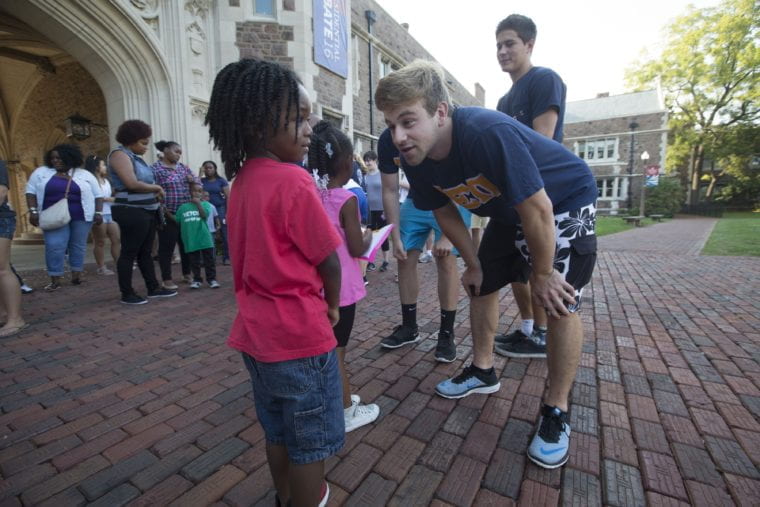
Photo by Jerry Naunheim Jr./WUSTL Photos
Program to cover full demonstrated need of admitted students; provide mentoring and resources
As part of its ongoing effort to admit and graduate more Pell-eligible students, Washington University in St. Louis has announced it will provide a free or low-cost undergraduate education to any admitted alumni of KIPP, a nationwide network of charter schools that serves low-income students.
The KIPP College Partnership will connect Washington University to bright, young minds across the country, create a more diverse student body and deepen ties with KIPP St. Louis, which educates 1,200 students at its two elementary and two middle schools. Washington University is KIPP St. Louis’ public charter school sponsor.
“KIPP is an organization that understands the importance of academic rigor, but it also understands the importance of developing character, aspirations and a love of learning,” said Ronné P. Turner, vice provost for admissions & financial aid. “Its culture of community spirit and collaboration aligns perfectly with Washington University values.”
As a KIPP College Partner, Washington University will cover a student’s full demonstrated need and will provide support, mentoring and resources. Washington University also will fund, based on a student’s need, recruitment visits and enrollment in its High School Summer Scholars Program, where qualified students can earn up to seven hours of college credit.
KIPP St. Louis public charter schools will serve both as certified work study sites for Washington University students and teaching residency sites for education students.
This summer, Leah Merrifield, associate vice chancellor for Community Engagement, announced the College Prep Scholarship for admitted graduates of Washington University’s College Prep Program, a multiyear program that prepares under-resourced and first-generation students from the St. Louis area for life on a college campus. in addition, Leading Together: The Campaign for Washington University, is on track to raise at least $400 million in new scholarship dollars.
To read the article in its entirety visit the WUSTL Source website.